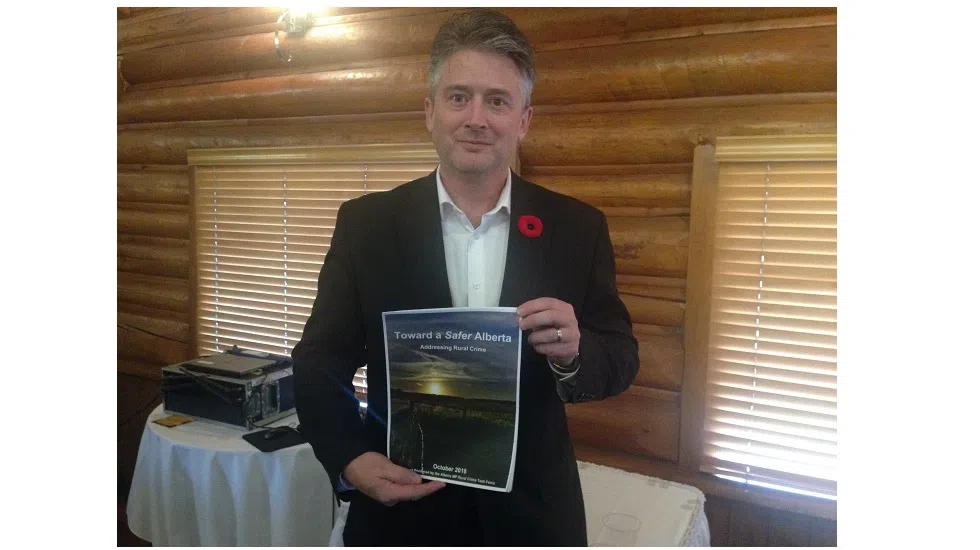
Calkins says ‘catch and release’ doesn’t work regarding rural crime
“We have to end the revolving door, the catch and release program doesn’t work.”
Those words from Red Deer-Lacombe MP Blaine Calkins regarding growing concerns over rural crime in Alberta.
Calkins was joined by Yellowhead MP Jim Eglinski at the Rural Crime symposium held during Agri-Trade at Red Deer’s Westerner Park on Friday where the two released a new report from the Alberta MP Rural Crime Task Force.
‘Toward A Safer Alberta’ summarizes the findings of meetings between Conservative Party of Canada (CPC) MP’s, UCP MLA’s and rural Albertans, community groups and law enforcement since the fall of 2017.


